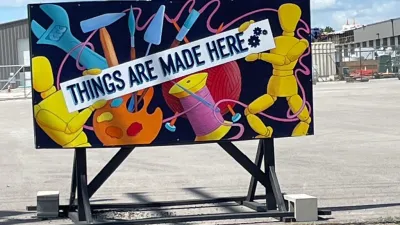Data on the pandemic shows once again the dramatic consequences of racial inequalities. Community Development Financial Institutions must focus on ensuring equity for Black-owned businesses.

Crises are the fulcrums of who we are as a society. The current COVID-19 pandemic is no exception. From the front-line health care and emergency workers to the idled people building toilet paper igloos in their homes, this crisis spotlights how our past experiences and decisions shape our current behaviors and reactions. And racism is our country’s most powerful shaper.
In the fifth week of wall-to-wall coronavirus news coverage, we began seeing data on the dramatic consequences of racial inequity. In Chicago, more than 70 percent of virus-related fatalities were among Black people—a percentage more than double their share of the population. In Michigan, Blacks make up about 15 percent of the state population but represent 52 percent of COVID-19 deaths. The same story is playing out in East Coast cities and Southern states where the virus has emerged.
We are told that viruses don’t discriminate, that this is an equal opportunity threat. Epidemiologically that may be true, but the conditions that created the virus’ existential consequences were years in the making.
Repeating History
Our finance industry is not unaffected. On March 27, Congress approved an unprecedented amount of money aimed at softening the pandemic’s economic consequences under the CARES Act. Included in the Act was $359 billion for the Payroll Protection Program (P3) to protect small businesses and nonprofits from being wiped out by providing forgivable loans through the Small Business Administration (SBA).
It was a major victory that, for the first time in history, the SBA opened up its programs to nonprofit corporations. However, the SBA is pushing out those loans through our current banking infrastructure, which has historically failed communities of color.
...
FULL STORY: Let’s Interrupt History: Racial Equity in a Time of Crisis

Study: Maui’s Plan to Convert Vacation Rentals to Long-Term Housing Could Cause Nearly $1 Billion Economic Loss
The plan would reduce visitor accommodation by 25,% resulting in 1,900 jobs lost.

North Texas Transit Leaders Tout Benefits of TOD for Growing Region
At a summit focused on transit-oriented development, policymakers discussed how North Texas’ expanded light rail system can serve as a tool for economic growth.

Why Should We Subsidize Public Transportation?
Many public transit agencies face financial stress due to rising costs, declining fare revenue, and declining subsidies. Transit advocates must provide a strong business case for increasing public transit funding.

How Community Science Connects People, Parks, and Biodiversity
Community science engages people of all backgrounds in documenting local biodiversity, strengthening connections to nature, and contributing to global efforts like the City Nature Challenge to build a more inclusive and resilient future.

Alabama: Trump Terminates Settlements for Black Communities Harmed By Raw Sewage
Trump deemed the landmark civil rights agreement “illegal DEI and environmental justice policy.”

Dear Tesla Driver: “It’s not You, It’s Him.”
Amidst a booming bumper sticker industry, one writer offers solace to those asking, “Does this car make me look fascist?”
Urban Design for Planners 1: Software Tools
This six-course series explores essential urban design concepts using open source software and equips planners with the tools they need to participate fully in the urban design process.
Planning for Universal Design
Learn the tools for implementing Universal Design in planning regulations.
City of Santa Clarita
Ascent Environmental
Institute for Housing and Urban Development Studies (IHS)
City of Grandview
Harvard GSD Executive Education
Toledo-Lucas County Plan Commissions
Salt Lake City
NYU Wagner Graduate School of Public Service





























